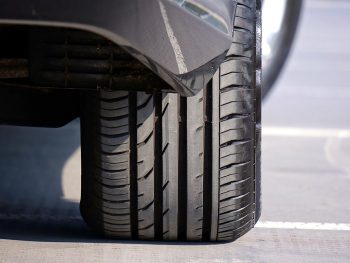Cost of living crisis increases importance of robust grey fleet policies
The cost of living crisis is making it more important than ever that companies have the right grey fleet policies in place, according to IAM RoadSmart.

As household incomes continue to be squeezed, IAM RoadSmart has warned that millions of drivers may be tempted to cut costs on car running costs – not only risking their own but also other road users’ safety
As household incomes continue to be squeezed, the independent road safety charity has warned that millions of drivers may be tempted to cut costs on car running costs – not only risking their own but also other road users’ safety.
This includes shunning new tyres in favour of cheaper part-worn tyres – described by tyre safety experts as ‘death traps’.
IAM has revealed that nearly 40% of the 1,000 drivers it surveyed said they would consider purchasing part-worn tyres in an effort to save money as the financial squeeze tightens. This potentially represents over 14 million motorists out of the 35.9 million drivers in the UK – and likely includes grey fleet drivers.
According to TyreSafe, on average, 159 people are killed or seriously injured every year as a result of defective tyre related accidents. An investigation conducted by TyreSafe also discovered that 63% of part-worn tyres were unsafe to return to the road and 93% were non-compliant.
Neil Greig, director of policy and research at IAM RoadSmart, commented: “In straitened times, it is little wonder so many drivers hesitate to purchase new tyres, which can cost up to £1,000 for four.
“However, the importance of purchasing high-quality tyres cannot be understated. Adequate tread depth is essential for safe driving on wet roads and facilitates effective acceleration, cornering and braking. Conversely, many part-worn tyres deliver longer stopping distances and reduced manoeuvrability, making them potential death traps.
“Drivers should also consider the cost per millimetre of usable tyres, rather than merely the initial purchase price. New tyres are normally sold with around eight millimetres of tread depth, whereas part-worn tyres have as little as two millimetres of tread.”
Greig added that the research on tyres reinforces the need for robust grey fleet management policies.
“Checks on driving licence, road tax, MOT and insurance for business driving are the bare minimum. To ensure minimum risk for their employees, companies should ensure vehicles are roadworthy and shortcuts are not being taken in regular maintenance. Information and tips on what is expected need to be shared on a regular basis and extra support offered to your drivers to help them drive for work in the safest and most efficient way possible,” he outlined.













